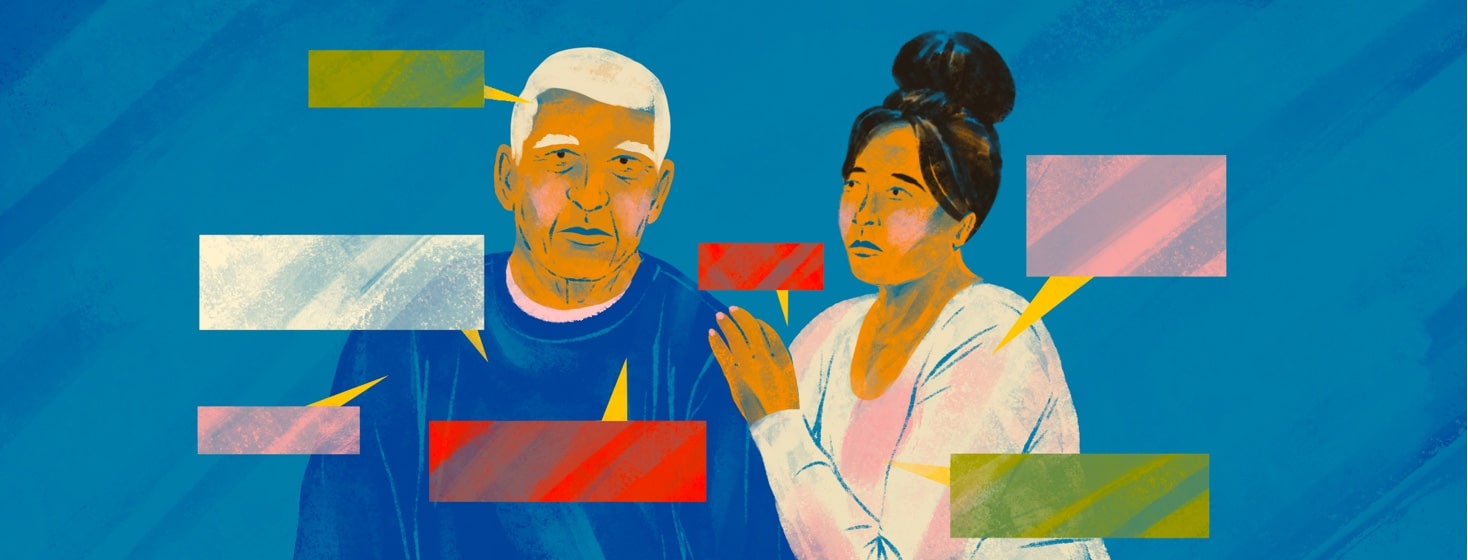What You Wish People Knew About Alzheimer’s
Alzheimer's is a largely misunderstood diagnosis, for many different reasons. In large part, this is because it is not always discussed openly and with honesty. Unfortunately, this leads to many misconceptions.
To learn more about the misunderstandings you have dealt with, we reached out to members of our Facebook community and asked: “What do you wish people knew about Alzheimer’s disease?”
More than 130 community members weighed in, and here is what was said.
Younger people can be diagnosed too
This disease can happen much sooner than most people realize. It is most typical for someone to be in their 60s before Alzheimer’s symptoms start occurring, but it is possible to show up in someone who is in their 30s.
“There can be horrible, shocking, early symptoms. My father did something so shocking we took him to the doctor, and we found out he had early Alzheimer’s. He seemed pretty normal otherwise.”
“Notice the little personality changes early. It is not always obvious.”
“If someone close to you is starting to act a little differently or a little off, do not blow it off. Start asking questions and watching closer. Get a good doctor involved ASAP.”
The diagnosis can feel isolating
Many members in the community voiced that friends did not make the effort to learn how to be around their loved one with Alzheimer’s. Many people do not know what to say or do, so they simply give up. Caregivers know how hard it is to make the adjustment to their loved one’s changes, and they wish their friends would try to make the adjustment as well. In this case, effort and trying go a long way.
“Wishing everyone could understand how lonely the affected person and the caregiver can become. It has been hard to watch my husband no longer function. But I love him unconditionally.”
“It is a very lonely life after everyone finds out that someone has Alzheimer’s.”
It is hard being a caregiver
Caregivers need support too. Caring for someone with an Alzheimer’s diagnosis can be emotionally, mentally, and physically exhausting. Some likened it to having a child again, as the person with the diagnosis often requires constant supervision. There is a lot of explaining, patience, and acceptance involved. Plus, in many cases the caregiver is so focused on the person with Alzheimer’s that they do not take the time to acknowledge their own needs and ask for support.
“It is still so hard on the caregivers. I helped take care of my dad and it was exhausting, but I would do it all over again!”
“I wish everyone knew how hard it is to be the caregiver. Wow. I never knew until I was the caregiver of my mother who passed away 2 years ago. Now, I am the caregiver of my dad who has dementia, and my sister has early onset Alzheimer's. It is very hard to watch someone slip away like that.”
“How difficult it is for the patient and the caregivers.”
“The biggest problem is the person has no pain and no idea about anything. So sad. But the family and caregivers are the ones who suffer.”
Sometimes caregivers have to live in their loved one's realities
It can be a challenge to learn how to talk with someone with Alzheimer’s.
Initially, many people may try to correct the person with the diagnosis, but that does not lead anywhere. Instead, many suggested trying to understand the reality of the person with Alzheimer’s. What they see, think, and experience is real for them. They are not trying to be difficult.
“I wish family and friends would stop arguing with the person and trying to bring them back to reality. It only agitates them. Agree with them. It does not hurt you.”
“Everything. If they say it is snowing in July? It is snowing.”
“Meet them where they are. Do not try to force them to remember. It is OK to fib and lie.”
Thank you to everyone who shared their experiences with Alzheimer’s. We appreciate your honesty and compassion.

Join the conversation